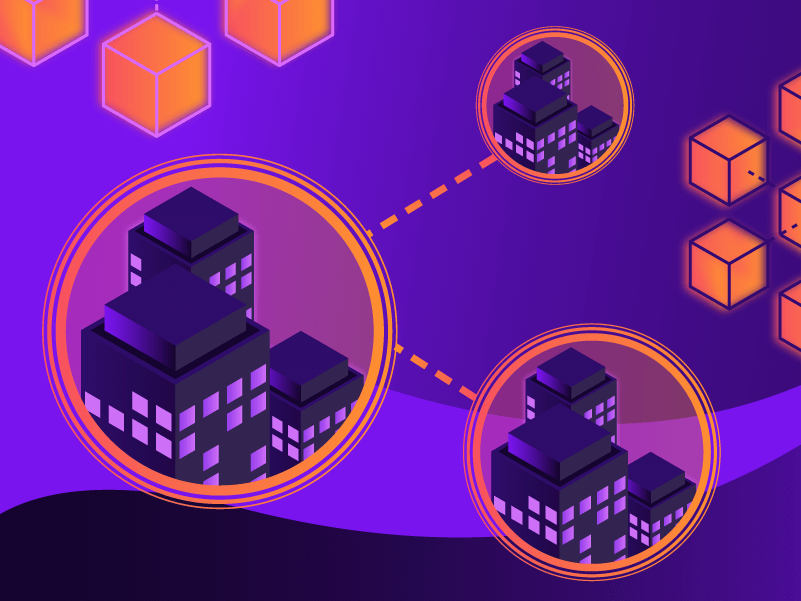
Transforming Real Estate: The Power of Blockchain Solutions
Blockchain technology has transcended its origins in the realm of cryptocurrencies, making substantial inroads into various industries. One area where its transformative potential is gaining considerable attention is in real estate. Real estate blockchain solutions are reshaping the way transactions, documentation, and overall processes occur within the property market.
Revolutionizing Property Transactions
At the core of blockchain’s impact on real estate is its ability to revolutionize property transactions. Traditional real estate transactions involve multiple intermediaries, paperwork, and a lengthy process. With blockchain, these transactions can become more secure, transparent, and efficient. Smart contracts, self-executing contracts with the terms of the agreement directly written into code, streamline the buying and selling process, reducing the need for intermediaries.
Enhancing Security and Transparency
Security and transparency are perennial concerns in real estate transactions. Blockchain addresses these issues by providing a decentralized and immutable ledger. Every transaction and piece of data related to a property is securely recorded on the blockchain, reducing the risk of fraud and ensuring an unalterable history of ownership. This transparency instills trust among parties involved in real estate deals.
Streamlining Property Records and Documentation
Property records and documentation are integral parts of real estate transactions, often requiring extensive paperwork and manual verification. Blockchain simplifies this process by digitizing and securely storing all relevant documents on a decentralized network. This not only reduces the risk of document loss but also expedites the due diligence process, allowing for quicker and more reliable transactions.
Fostering Global Real Estate Investments
Blockchain technology facilitates the tokenization of real estate assets, breaking down property value into tradable tokens. This innovation opens up new avenues for fractional ownership and global real estate investments. Investors can purchase and trade tokens representing fractional shares of properties, providing accessibility to a broader pool of potential investors.
Eliminating Intermediaries and Reducing Costs
Traditional real estate transactions involve various intermediaries such as brokers, banks, and legal entities, each adding to the overall cost. Blockchain has the potential to eliminate or significantly reduce the need for these intermediaries. This not only makes transactions more cost-effective but also expedites the process, allowing for quicker property transfers.
Challenges and Regulatory Considerations
While the potential benefits of real estate blockchain solutions are vast, challenges and regulatory considerations exist. The legal framework surrounding blockchain in real estate needs to evolve, and standardization is crucial to ensure compatibility across different platforms. Overcoming these challenges requires collaboration between the technology sector, real estate industry, and regulatory authorities.
Innovations in Real Estate Financing
Blockchain’s influence extends beyond transactions and documentation to financing. Cryptocurrencies and blockchain-based platforms enable new financing models, such as crowdfunding and peer-to-peer lending, transforming the way real estate projects are funded. This democratization of financing can lead to increased opportunities for investors and developers alike.
Creating a Decentralized Real Estate Ecosystem
The decentralized nature of blockchain is reshaping the traditional real estate ecosystem. Decentralized applications (DApps) are emerging, providing platforms for property listing, smart contracts, and even property management. These DApps aim to create a more inclusive and efficient real estate marketplace by leveraging the benefits of blockchain technology.
Sustainability and Energy Efficiency
Blockchain can contribute to sustainability in real estate by enabling more efficient energy management. Smart contracts can be programmed to automate energy-saving measures within properties. Additionally, blockchain-based platforms can track and verify the sustainability credentials of buildings, promoting eco-friendly practices in the real estate sector.
Exploring the Future of Real Estate Blockchain
As real estate blockchain solutions continue to evolve, the future promises even more innovations. From improved interoperability between different blockchain platforms to increased adoption of tokenization, the real estate industry is on the brink of a transformative era. Staying informed about these developments is essential for industry professionals, investors, and anyone involved in real estate.
To explore the transformative potential of real estate blockchain solutions, visit Real estate blockchain. Discover how blockchain is reshaping the landscape of real estate transactions and unlocking new possibilities for the industry.












